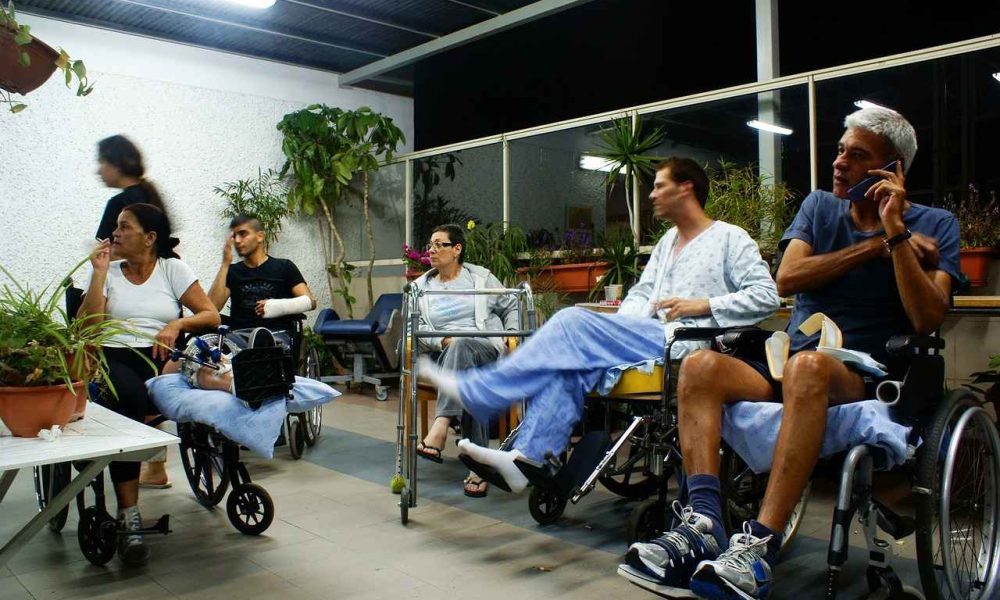Are you in search of a rehabilitation center for your loved one? If so, then this article will share more about Pacific Ridge and how their center can be of help. Rehabilitation centers offer a variety of treatments to enable people to recover from their health and wellness issues. From physical therapy and counseling to support groups and education, these facilities provide comprehensive programs that are tailored to address the multifaceted nature of recovery.
Whether opting for an inpatient or outpatient setting, understanding the purpose of rehab centers is key for making informed decisions about treatment options. Informed decision-making aside, this article will help you appreciate the significance of rehabilitation centers by detailing the potential benefits they can bring with them; including improved physical health, emotional stability, and spiritual development.

What is a rehabilitation center?
A Rehabilitation Center is a facility dedicated to offering specialized medical care and treatment for individuals who have experienced physical or mental impairments due to injury, illness, or disability. At these centers, diverse rehabilitative treatments such as physical therapy, occupational therapy, and speech therapy enable patients to regain their independence and improve the quality of their life.
These centers strive to support their members in attaining maximal physical, emotional, and psychological well-being, so that they can lead independent and fulfilling lives. To achieve this purpose, a multidisciplinary team composed of doctors, nurses, therapists, dieticians, psychologists, social workers, and additional healthcare professionals provide comprehensive services. Furthermore, Rehabilitation Centers employ activities like group counseling sessions and recreational exercise programs to boost patients’ physical activity and social engagement levels.
Also Read: Social Media and Healthcare: How to Keep Patients Engaged
Overview of Benefits of Treatment
The following are some of the advantages of getting help in a rehabilitation center:
-
A structured and supervised environment
The supportive and secure atmosphere at a rehabilitation center empowers individuals to focus on their recovery with reduced risk of relapse. Benefitting from the expertise and ongoing guidance of certified professionals, those in treatment have access to a range of services such as therapy, support groups, and educational programs to obtain the knowledge needed to sustain an addiction-free life. With access to regular meetings and contact with others receiving care in the facility, participants can reclaim their self-esteem without threat or judgement from external sources. In addition to such beneficial support, recreational activities are offered that provide an avenue for stress release while also fostering social connections within a safe environment. Thus, through this combination of resources, an atmosphere conducive to healing is successfully cultivated both mentally and physically.
-
Medical supervision
Medical supervision is an integral part of rehabilitation centers, as it guarantees patient security and well-being all through the period of withdrawal. As withdrawal symptoms can be especially extreme, even life-threatening at times, trained experts are qualified to recognize any early signs, provide lifesaving assistance, and give the right medication if necessary. Furthermore, patients have access to customized treatment plans with professional help from healthcare professionals such as doctors, nurses, and other specialists, which significantly increases the chances of positive outcomes.
-
Individualized treatment plans
The team of professionals at the rehabilitation center strive to offer personalized care tailored to the patient’s individual needs. After conducting a thorough assessment composed of physical, psychological, and social evaluations, each treatment plan is meticulously crafted for each patient. Such plans are then adjusted continuously as the recovery process progresses and adapted should an alternative approach become more beneficial to achieve their goals. Ultimately, this individualized approach ensures that each patient receives the best possible care.
-
Access to counseling and therapy
Battling addiction or mental health issues can be a long and arduous journey, but counseling and therapy sessions may be the solution to uncovering the root causes of those burdens. When these individuals enter a safe, supportive environment with qualified therapists, they are granted an opportunity to learn more about themselves and acquire healthier ways to cope with life’s obstacles. Treatment plans are strategically customized to meet the patient’s needs and goals and might incorporate cognitive-behavioral therapy, dialectical behavior therapy, mindfulness practice, art therapy, and/or group work. Additionally, many rehabilitation centers offer family counseling which assists in building positive communication amongst family members and creating strategies for how loved ones can support each other throughout recovery.
Also Read: Ethereum Blockchain Plus Points for Healthcare!
-
Peer support
Peer support is an invaluable part of rehabilitation. It facilitates the formation of a supportive community among those in recovery, offering opportunities for personal storytelling and insightful exchange of coping strategies. Such a system can bolster self-confidence and encourage individuals to stay committed to their treatment plans. Moreover, peers can be instrumental in connecting people in need with crucial resources for long-term success. Ultimately, peer support provides recuperating patients with the strength and support they need to persist through difficult times during their journey of healing.
Recovery centers provide an effective and caring environment for those suffering from substance abuse. Incorporating evidence-based therapies such as cognitive behavioral therapy, relapse prevention, and other therapeutic strategies, individuals are given the necessary tools to revolutionize their lives for the better. Furthermore, centers give edifying lessons, life skills education, and peer support networks to solemnly engender success in the long run. With the help of a reliable team, people in recovery can advance and reach their maximum potential while forming constructive habits that ensure emotional balance.











+ There are no comments
Add yours